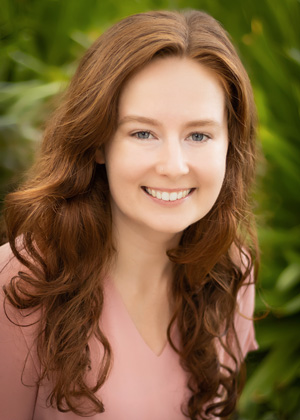Get the Right Help to Feel Better – Call (650) 461-9026 or Text (650) 461-9026
Bridget Haerr, LPCC

Ages: Adults (18+ years)
Teens (14-17 years)
Pre-Teens (12-13 years)
Bridget Haerr, LPCC
Bridget strives to create a safe environment for clients that is welcoming and collaborative. She likes to utilize humor and connecting through a client’s interests in order to improve their comfort level throughout sessions. By embracing an empathetic approach without judgment, Bridget prioritizes developing a strong therapeutic alliance with clients to ensure they feel secure enough to be honest and open about their experiences. While working together, Bridget acknowledges that each client is the expert on their own life. Bridget believes that her role is to provide some needed insight and skills that are designed to support the client along their journey. Throughout treatment, Bridget encourages a client’s active participation in order to build their sense of empowerment to accomplish their therapy goals.
Pulling from evidence-based practices, such as Cognitive Behavioral Therapy and Dialectical Behavior Therapy, Bridget intends to support clients in learning more about how their thoughts influence their feelings and behaviors. She wants clients to feel capable of using the skills they learn both inside and outside of sessions in order to create real, lasting change.
Bridget received her Bachelor’s degree in Psychology from the University of Illinois at Urbana-Champaign and her Master’s degree in Clinical Mental Health Counseling from Adler University. She has experience working with children, adolescents, and young adults in community mental health, school-based, and residential settings. Bridget is passionate and effective in working with those struggling with life transitions, anxiety, low self-esteem, depression, and interpersonal conflict.
In her free time, Bridget enjoys being part of her book club, going for hikes and walks, traveling, playing video games, and finding new restaurants to try.
Concerns:
- Academic Stress
- Anger
- Anxiety
- Attention-Deficit Disorder (ADHD)
- Body Image
- Chronic or Terminal Illness
- Death, Grief, and Loss
- Depression
- Eating and Food Issues
- Family Problems
- LGBTQIA+, Gender Identity, Sexual Orientation
- Panic Attacks
- Phobias
- PTSD/Trauma
- Relationships/Communication
- Self-Esteem
- Self-Harm
- Social Anxiety/Phobia
- Stress
Intensive Study/Specialization:
- Cognitive Behavioral Therapy
- Dialectical Behavioral Therapy
- Mindfulness
- Trauma focused CBT
Professional counselor education and training standards for licensure are on par with marriage and family therapists and clinical social workers, the other two master’s level mental health providers in the state. Requirements for California’s Licensed Professional Clinical Counselors (LPCCs) include:
- Possession of a 60-unit master’s or doctoral degree in counseling, or a closely related degree, from a regionally accredited or “approved” institution of higher education that includes certain core content areas
- Completion of a minimum of 3,000 hours of post-master’s supervised clinical experience, performed over two years, and continuing education hours for renewal (Before full licensure, LPCCs are called “Associates”.)
- Passage of the National Clinical Mental Health Counselor Examination (NCMHCE) and a California Law & Ethics Exam
- Adherence to a strict Code of Ethics and recognized standards of practice, as regulated by California’s Board of Behavioral Sciences
How can a LPCC help me?
Like other mental health professionals such as social workers, psychologists, psychiatrists, LMFTs, LPCC’s help clients by diagnosing and treating common emotional and behavioral difficulties that interfere with functioning at an optimal level. LPCC’s use empirical-supported counseling techniques to help their clients achieve desired goals.
